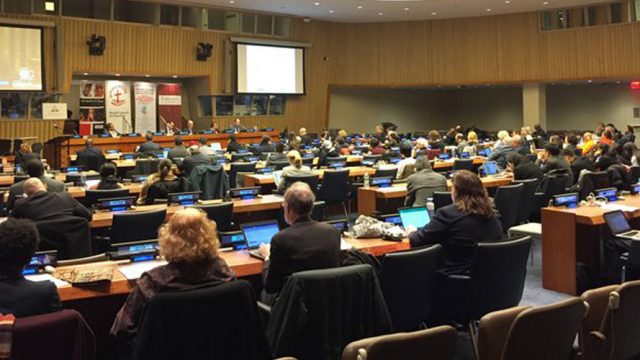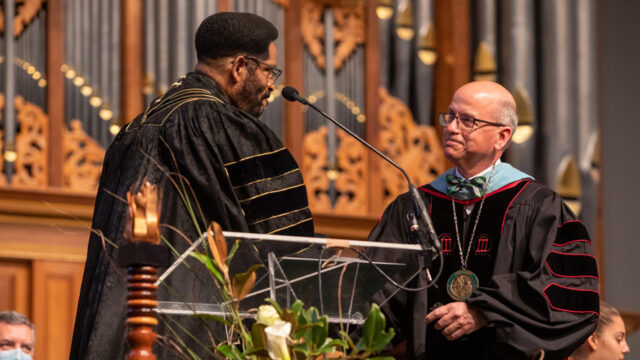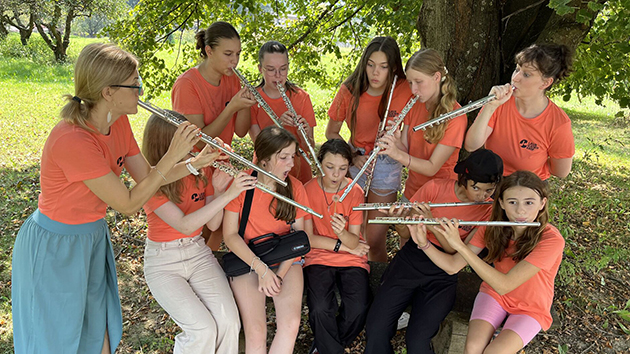Hope in our seasons of burnout.

And he said to him, ‘Son, you have always been with me, and all that is mine is yours’ ” (Luke 15:31, NASB).*
There are seasons when it seems like the weight of your consistency bears heavily on your heart. You’ve tried your best and been diligent in effort or prayer, and yet you’ve nothing to show for it. Worse still, it’s almost as if every time you look up, someone around you is being “blessed.”
Perhaps you’ve prayed longer or worked harder, but it appears as if the prayers of others are answered without delay and yours are not. You’re used to being happy for everyone around you, celebrating their blessings and miracles, but in the secret parts of your heart you wonder to yourself, When will it be my turn to be happy for me?
What do we do when we feel as though we’ve labored but have nothing to show for our effort? What can we do when it seems all our effort is met with silence?
What to Do?
When we feel as if we’ve labored in vain, a beautiful story to reflect on is the parable of the prodigal son in Luke 15:11-32. Perhaps you’ve heard the story. In the parable the son approaches his father and asks for his inheritance. Although his father doesn’t have to oblige, he willingly acquiesces to his son’s desire. The son leaves for a faraway place where he frivolously spends all his inheritance living as he chooses. When famine hits, he finds himself desperate enough to eat the food of the pigs he is taking care of. Only then does the prodigal realize that the lowest servant in his father’s home is treated better than he’s living right now.
The son resolves that he’ll go to his father and ask to be one of the servants. Upon arriving home, he’s brought face to face with his father’s love. Not only is his father waiting for him when he comes home, but he gives him his best robe, puts a ring on his finger and sandals on his feet, and throws a feast in celebration of his return.
When we think of the story of the prodigal son, God’s unwavering love is often presented as the key theme. But for a moment I would like you to reflect on the experience of the third character in this story, the older brother. I believe the encounter with his father can give respite to the weary soul.
The Older Brother
We’re introduced to the older brother as he’s working in the field. His attention is brought to his brother’s return when he hears music and a celebration. The Bible tells us that he is filled with anger and refuses to join. When the father inquires about the reason for his absence from the celebration, in frustration the older brother responds that he has been in his father’s house tirelessly working and obeying all the commands, but never once has there been a celebration for him!
Often the bitterness of the older brother is emphasized when exploring this parable, but let’s evaluate the situation through his lens. Not only does his younger brother receive the gift of his inheritance preemptively and then squander it, but upon returning home after his poor choices, he receives an additional gift of celebration. From the older brother’s perspective, all he sees is his brother being celebrated for his unfaithfulness to his father. All the while he never once receives either of the gifts his brother has been given, though he has been faithful.
From that perspective his frustration is understandable. Perhaps he feels unseen or exhausted, and he wonders where his reward is. Perhaps he feels angry because it seems as if his brother’s negligence has been rewarded, while his own diligence has gone unnoticed. Perhaps he feels envious. Maybe he wonders what his life would have been like or what joys he could have experienced if he had taken his inheritance and lived on his terms.
The older brother seems as though he’s suffering from burnout. But the father’s response to his weary son comprises words we can apply to our lives when we feel exhausted beyond relief. To the older brother the father says, “Son, you have always been with me, and all that is mine is yours.” What is the significance of this response? The father has sought to show his older son that the gift to be desired is not the inheritance, the perceived freedom, or the celebration—but the father himself. The gift all along was the love of the father.
How Does It Apply to Me?
It’s easy to believe that when we pray for a job, a relationship, financial stability, or some form of success and we attain it, it’s a sign of God’s blessing and goodness toward us. Likewise, when the things we pray for and seek become unattainable, when we’re disappointed, or denied, or can’t discern an answer, we often conflate this with a sign of God’s rejection. It’s also easy, as did the older brother, to think that our consistent effort is the way to garner favor with God. But at some point we’ll end up just as the brother did—angry when things don’t go according to our plans and bitter when they do for others.
Christ wants us to understand that what we seek can’t be found in tangible things such as inheritance, financial stability, relationship, or success. Nor can it be discovered in habits that we so often pride ourselves on, such as obedience or diligence or consistency. There’s no satisfaction in working mindlessly toward these goals. The deepest longing of our heart is for God, and He’s already ours. And just as the father met the prodigal son on that road when he was returning home and he met his older son tired out in the field, God will consistently meet you and remind you that He was the gift all along. He’ll repeat this truth to you in small and intimate ways. You are His child; therefore, you have full access to everything you need, whether you can feel it now or not.
When you’ve worked and given all you can, and your soul feels exhausted; when you’re tempted to question if you’ve been forgotten and overlooked, challenge yourself with these questions: What am I truly looking and working for? What do I think I will find if I receive exactly what I want? How would my mindset and behavior change if I cherished the idea that I already have the greatest gift of all, which is the love of God? How can I reframe my mind to see that every season, be it a season of abundance or waiting, and every gift—whether intangible or tangible—is simply an extension and reflection of the love God has freely given?
Are you tired and feel as though you have little to show for your effort? Take comfort in the promise made to the older son: Everything that belongs to your Father also belongs to you.
* Scripture quotations marked NASB are from the New American Standard Bible, copyright © 1960, 1971, 1977, 1995, 2020 by The Lockman Foundation. All rights reserved.








